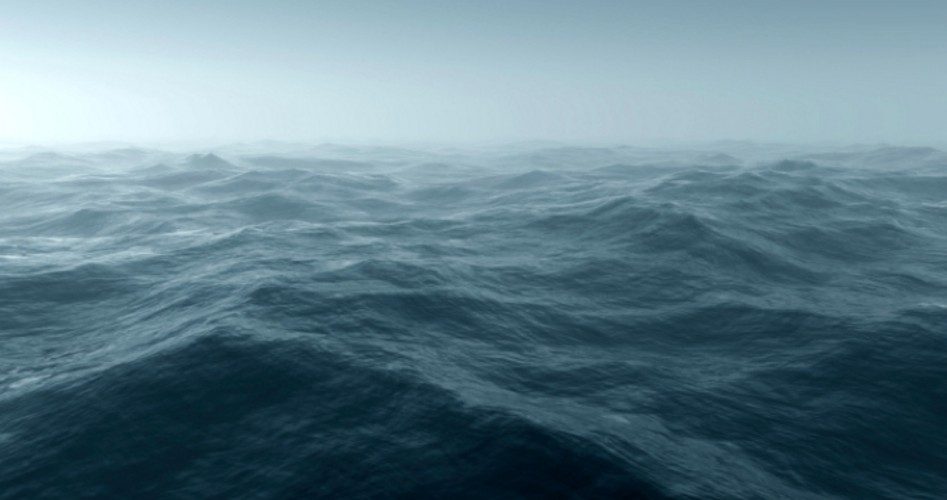
On January 11, the Defense Advanced Research Projects Agency (DARPA) announced a weapons program that sounds as sinister as it does science fiction.
In a program it inelegantly calls Upward Falling Payloads, the clandestine military research and development group plans to build weapons vehicles that will be stored dormant underwater for years and then suddenly surface when summoned by remote control and deliver their payloads — including drones — by “falling upward.”
“The goal is to support the Navy with distributed technologies anywhere, anytime over large maritime areas. If we can do this rapidly, we can get close to the areas we need to affect, or become widely distributed without delay,” said Andy Coon, DARPA program manager. “To make this work, we need to address technical challenges like extended survival of nodes under extreme ocean pressure, communications to wake-up the nodes after years of sleep, and efficient launch of payloads to the surface.”
In an announcement, DARPA reasons that the sea is the perfect place to hid these deadly nodes. Keeping the weapons below the surface will give their attacks the element of surprise and the vastness of the oceans “provides opportunity to simultaneously operate across great distances.”
DARPA describes the scope of the sea-bound program:
DARPA seeks proposals in three key areas for developing the program: Communications, deep ocean “risers” to contain the payloads, and the actual payloads. DARPA hopes to reach technical communities that conduct deep-ocean engineering from the telecom and oil-exploration industry to the scientific community with insights into signal propagation in the water and on the seafloor. Since the program will emphasize the use of ambient pressure containment with its risers, there is no need for specialization of payloads to accommodate the extreme pressures of the deep sea. Communities with technical background in unmanned platforms; distributed sensors; networking; sensor packaging; information operations; electronic warfare; anti-submarine warfare, etc. may all be able to play a role.
Seems there’s a job for anyone with a drone or surveillance background.
These remote control water robots will be large enough to carry various payloads, including drones. The published size of the ideal underwater capsule is 17 inches in diameter, if it’s a sphere, or five inches around and 36 inches long, if the chosen design is a capsule form.
As Yahoo reports, hiding drones under the sea has been tested before. The Navy, for example, “tested the launch of flying drones from a submarine’s trash chute.”
Of course, in its statement revealing the program, DARPA assured readers that the Upwards Falling Payloads plan will have a “non-lethal” emphasis and is “specifically not a weapons program.”
“But other countries may have a different opinion on the definition of ‘non-lethal’ for robots or drones deployed to carry out surveillance or jam communications,” DARPA admits.
It is unlikely that country (or geographically unattached organization) targeted by the water-borne weapon will consider something such as a complete disabling of internet infrastructure to be “non-lethal,” regardless of the Pentagon’s promises.
Yahoo’s story about the DARPA project highlights what it calls “the U.S. Navy’s turn to a growing swarm of robotic ships and flying drones that can supplement traditional warships and aircraft.”
A DARPA spokesman says that there’s nothing nefarious in the new direction of drone deployment. The military just wants to open “an alternative path to realize these missions without requiring legacy ships and aircraft to launch the technology, and without growing the reach and complexity of unmanned platforms.”
When you add that frightening fact to DARPA’s own drive to develop sophisticated surveillance technology, you have a world where anyone unfortunate enough to show up on the government’s radar can be tracked, targeted, tagged, and destroyed no matter where he runs — on land or on the sea.
Joe A. Wolverton, II, J.D. is a correspondent for The New American and travels frequently nationwide speaking on topics of nullification, the NDAA, and the surveillance state. He can be reached at [email protected].


